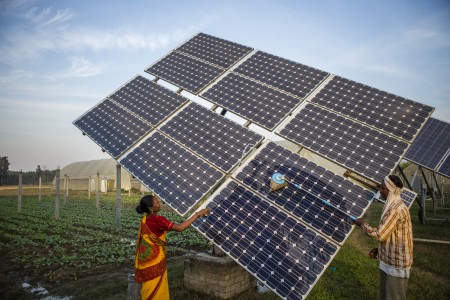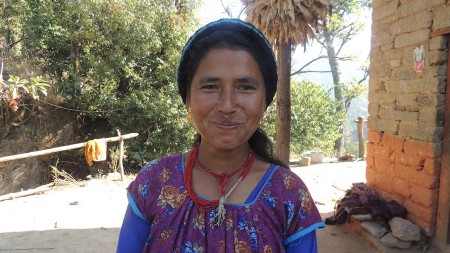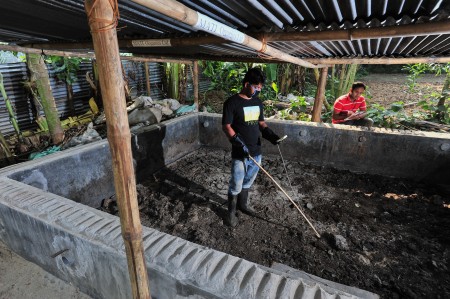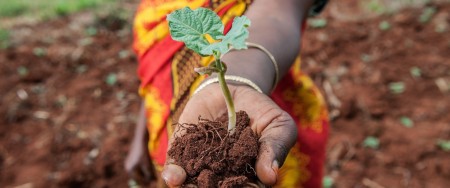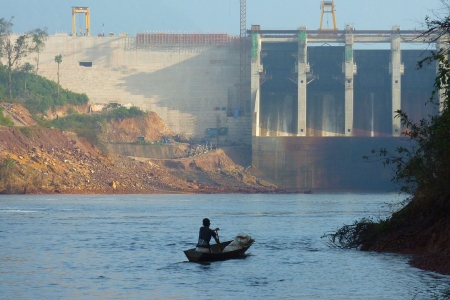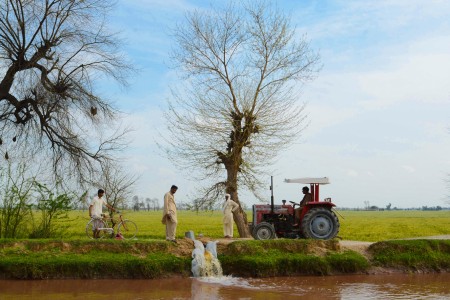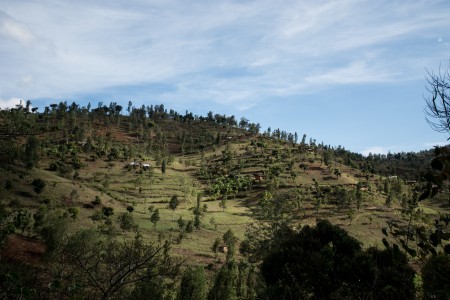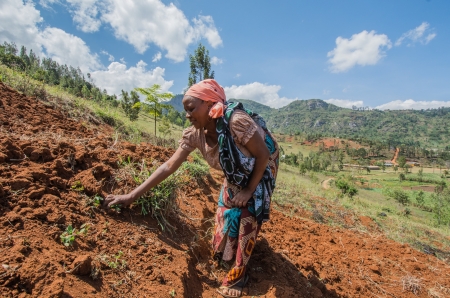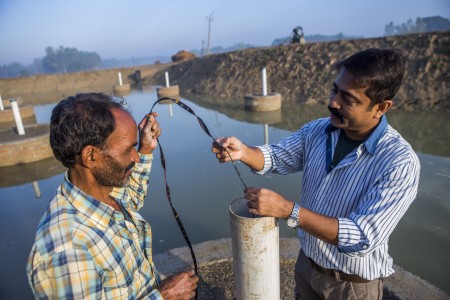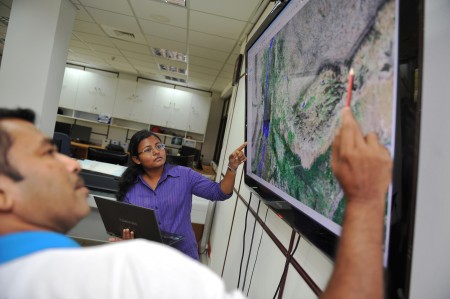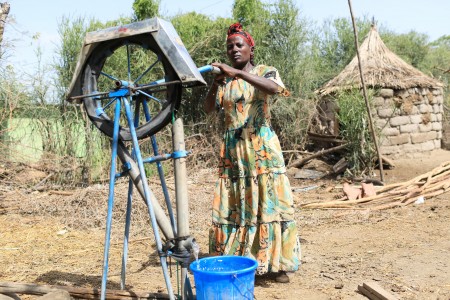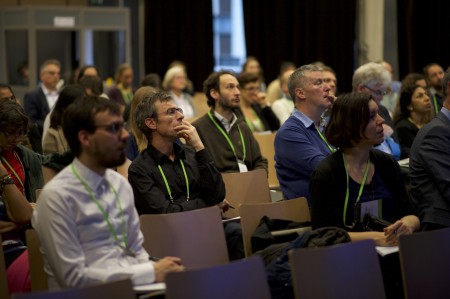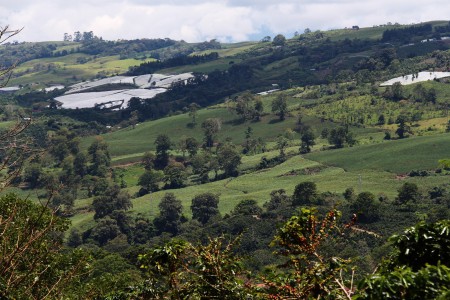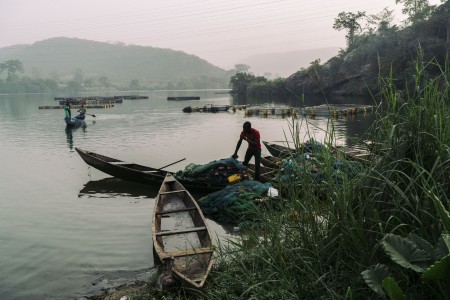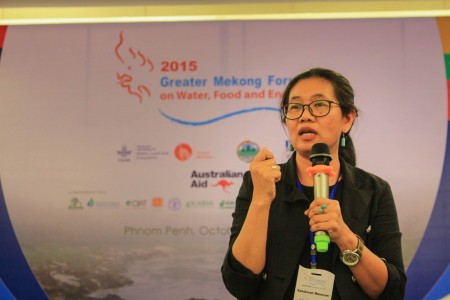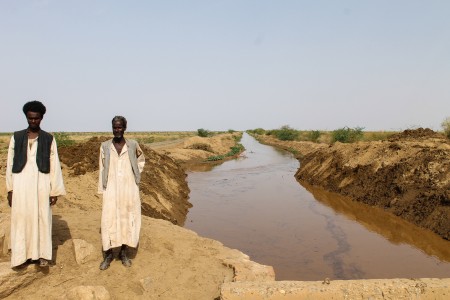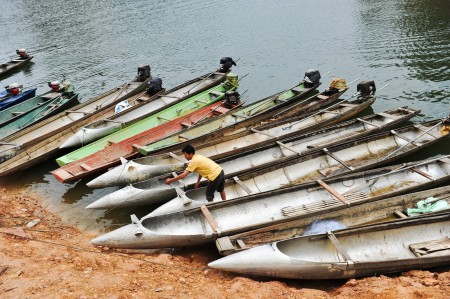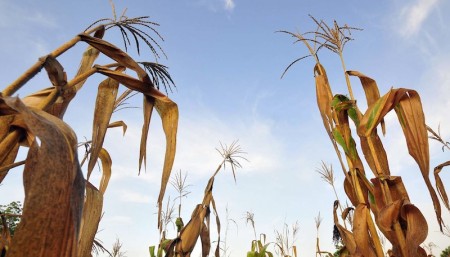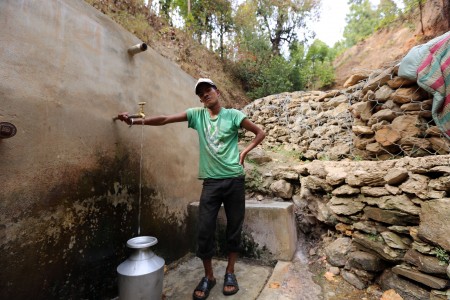The WLE 2015 Annual Report > Practical approaches to regional problems

Inclusive, participatory process makes for more equitable planning in Laos
Communities and stakeholders affected by development investments in Laos, especially investments connected to the use of water and land resources, are commonly excluded from consultative processes. In addition, existing institutional settings, geared to single-sectors solutions, make it difficult to coordinate across sectors and government departments. A lack of agency coordination generally precludes consideration and understanding of sectoral interactions, which can have adverse and unforeseen economic, social and ecological consequences.
Scientists from the CGIAR Research Program on Water, Land and Ecosystems (WLE), who are working in the Greater Mekong, are trying to bridge this knowledge gap in the Nam Xong River Basin. They are accomplishing this by deploying a participatory process for making decisions on water, land and energy investments more inclusive and better coordinated. The objective is to enable decision makers to discover their own sustainable, novel and cross-sectoral solutions.
The Mekong Futures Research Institute (MERFI) is working with the National Economic Research Institute (NERI) of the Lao Ministry of Planning and Investment, and the Department of Water Resources (DWR) under the Ministry of Natural Resources and Environment to identify competing and diverse water and land demands in the basin. In so doing, they hope to identify how livelihoods, the environment, and long-term basin productivity will be impacted by policy and how this policy interacts with investments. The project team have partnered with participants from different governance levels and sectors to create a coordinated planning process. This coordinated process enables the participants to identify and address unexpected feedbacks and consequences from existing investment proposals. The process allows them to discover new solutions, usually in the form of policy initiatives, which take into account the needs of various water and land users, as well as the needs of the environment, in order to collectively create a better balanced investment plan for the basin.
By working with representatives from NERI and DWR to implement the participatory planning process, collect data on household livelihoods, and identify specific impacts of development interventions, the project aims to improve the governmental understanding of how investments will bring about various livelihood, ecological, and economic trade-offs within the Nam Xong basin. An anticipated outcome is that this will improve inter-agency consultation and coordination when designing policy and planning for development of the basin.
To date, the project has facilitated the discovery by relevant stakeholders of completely new options for agricultural intensification that don’t compromise ecosystem function, i.e. how to maintain minimum flows, improve livelihoods, and make basin management more gender equitable. These options take into account the needs of communities and sectors that have competing demands and interests, and integrate these needs in an inclusive way. This was made possible, in part, by the unprecedented coordination and cooperation between NERI and DWR in regards to data and knowledge exchange, which was catalyzed by the project design.
Learn more
This project is part of WLE's work in its Greater Mekong focal region. Established in 2015, the research for development projects in the focal regions are designed to address local challenges to sustainable intensification of agriculture. The projects are led and carried out by local partners.
Agriculture 2.0:
towards a global revolution
for sustainabilitywater, land and ecosystems research highlights
2015 – 2016
A message from Johan RockströmWLE Steering Committee Chair
Agriculture 2.0
Current farming practices use 70 percent of the Earth’s fresh water, degrade 40 percent of land and contribute to 30 percent of greenhouse gas emissions.
But there is a better way: putting sustainability at the center of our food systems will not only reverse climatic degradation, but also accomplish the productivity that is necessary to feed 9 billion people by 2050.Sustainability is not just a necessity. It is an untapped opportunity for improving the livelihoods of male and female smallholders farmers, ensuring the productivity of the land into the future, and better harnessing the services provided by our ecosystems.
The CGIAR Research Program on Water, Land and Ecosystems (WLE) is doing its part to make the sustainable intensification of agriculture a reality by producing evidence-based solutions for water and land management via partnerships that span nationalities, sectors and disciplines.
We invite you to explore highlights from WLE’s work below.
in 2015 wle: field tested 62 technologies and natural resource management practices, helped 125,000 farmers to apply new technologies or management practices, supported improved technologies or management practices on 2.5 million hectares
Solutions for sustainable intensification of agriculture
In 2015 WLE: established 41 multi-stakeholder platforms and influenced 200 policy processes
Engaging with the global agenda
Practical approaches to regional problems
WLE in 2015 had 110,000 website visits and 43,000 views on CG-space and published 141 ISI publications and 94 open access publications
